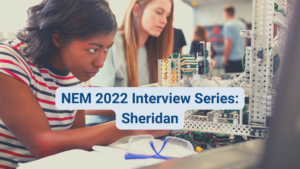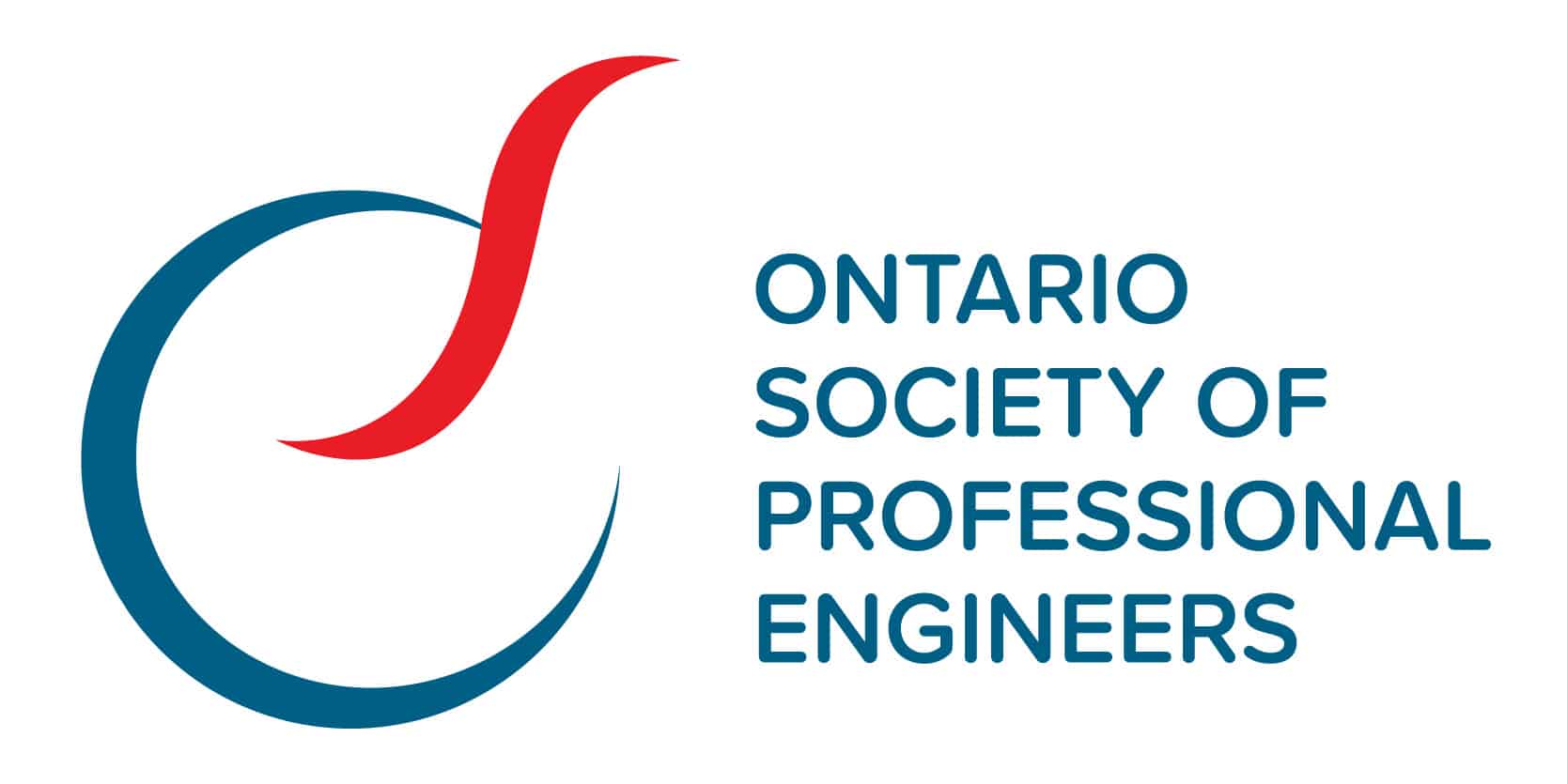
Leading up to National Engineering Month Ontario events, we are sitting down with leaders in Ontario’s engineering community to discuss key issues within the engineering & technology sectors. This week I met with Dr. Amjed Majeed who is the Associate Dean of the School of Mechanical and Electrical Engineering Technology at the Faculty of Applied Science and Technology at Sheridan College. What follows is a Q&A-style discussion about the importance of applied learning within engineering fields.
Q: Tell me about yourself and your engineering background.
I started my post-secondary education with a BSc in electrical engineering. I continued to complete a Master’s degree in electrical and nuclear engineering before finishing my Ph.D. in computing. When I first started working in the 90s I was an Electrical Engineer at Keystone Elevators. My role was to design circuits for the elevator controllers. I worked there for more than eight years before moving into academia.
Q: How do you like working at Sheridan?
At Sheridan, our focus is on student success. Our attention is on applied learning, believing that students should develop the necessary skill-sets before they graduate. When you talk to industry partners, they place a high value on the applied aspect of post-secondary education. Employers tell us they are more interested in how students apply the knowledge from their education to the workforce. With that in mind, we tend to have continuous collaboration with industry partners. We also place a heavy focus on our labs, so if you get the opportunity to visit Sheridan, you’ll see that our engineering labs, equipment, and software are industry-standard, so students can learn using the actual technology and equipment that can be found in the industry. We believe that this gives students a competitive edge for when they graduate and move into the workforce.
Q: Why does Sheridan participate in NEM?
National Engineering Month has always been near and dear to our hearts. The fact that we get the opportunity to showcase our programs and speak about what we do while serving the engineering community is something we really appreciate.
Q: The theme for NEM 2022 is lifelong learning. Why is lifelong learning important to you and to the engineering industry altogether?
When I talk to students about lifelong learning, I tell them that learning is ongoing – it’s what keeps us current and helps us to continually innovate. When I first joined Sheridan in 2017, one of the things that I integrated into our programs was a framework called CDIO (conceive, design, implement, operate). First launched by MIT, Sheridan is the first college in Ontario to implement a CDIO framework. The premise is that students take on applied projects starting in year one, and as they progress through the curriculum, the projects get progressively harder and build upon what they are learning in class. This enables students to get hands-on experience throughout their studies and helps them build strong communication skills, too.
Q: What gaps do you see in the engineering industry at the moment?
We need to get to the point where graduates are familiar with the skill-sets that potential employers are looking for, so strengthening partnerships with the industry is a must. For example, at Sheridan, we have job site visits, internships, and co-op and work placements. We also focus on applied research and getting students involved in applied research projects so that they can explore, alongside professors, new technologies with industry partners. And then we bring this technology back to the classroom and into the curriculum.
Q: Are there any specific programs or initiatives that you’d like to highlight?
There are two areas that we have been working on at the School of Mechanical and Electrical Engineering Technology. The first is industry certifications. We’ve been in discussions with specific industry partners related to robots and automation and we are incorporating their industrial curriculum into some of our courses so that when students complete a diploma, a bachelor’s degree, or advanced diploma, they will also have had completed industrial modules allowing them to be more eligible for employer certifications. This means students can get a college diploma and industrial certifications at the same time.
The other area in which we continue to focus is the Siemens Mechatronics Systems Certification program. This is a niche industrial program where we focus on mechatronics within a seamless curriculum. Once students join and complete the program, they will be eligible for the Siemens Certification which will help them get jobs in a number of industries within Ontario and Canada.
Q: I’d like to shift gears and talk about the future of engineering. What does the future of engineering look like to you and what can students, recent grads, and professionals do to ensure they thrive?
That’s a great question. Over the last decade, engineering has shifted from a traditional approach to an integrated discipline. There’s a need for computer & software competencies, business, communication, and an entrepreneurial mindset that sparks innovation, so all these things are now a part of the engineering sphere. When you consider automation, artificial intelligence, vision systems, and the like, engineers no longer do one specific task – now they are doing tasks related to other fields as well. At Sheridan, we really focus on that. For example, we recently received approval from the ministry to launch a new certificate. It’s a one-year postgraduate certificate in the internet of things and machine intelligence. By offering programs like this we are equipping students with all the skills that they need to hit the ground running right after they graduate.
Q: Is there anything else that you would like to add to today’s conversation and anything else that you know you think might be important for people to know?
It’s important to add that we love extending our expertise and resources to our community. We are more than happy to come to schools or to any organization that needs help or support. We give seminars and sessions, and companies can even take training at the school. We love giving back to the engineering community and want to continue doing that now and into the future.
Join Sheridan on March 4th for a free online event – Conceive-Design-Implement-Operate: Sheridan delivers experiential learning that prepares degree graduates to excel in engineering technology fields. RSVP today.
National Engineering Month is Ontario’s engineering event of the year.
Learn to change the future of engineering – together. Attend National Engineering Month Ontario events. With bold topics, industry expertise, and diverse perspectives, you won’t want to miss it. To stay up to date on the latest news and information about #NEM2022, please visit our website.


